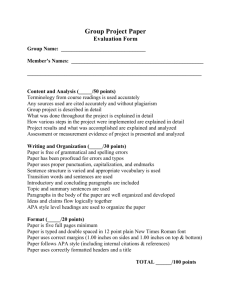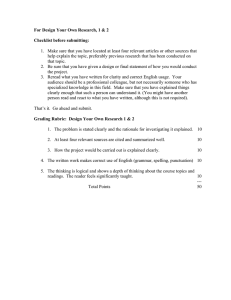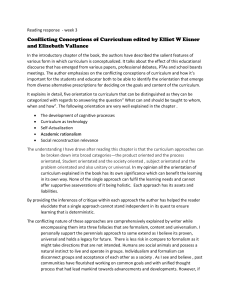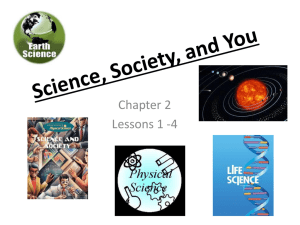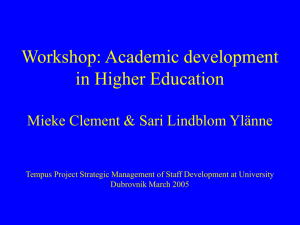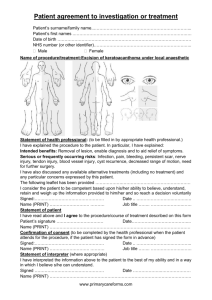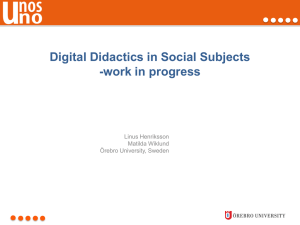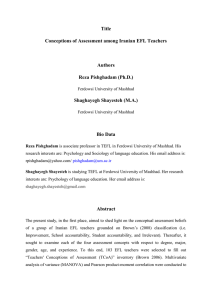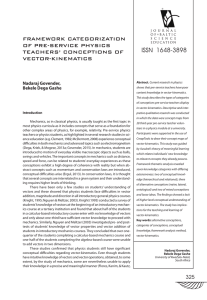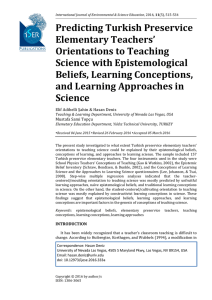5E LP Guide
advertisement
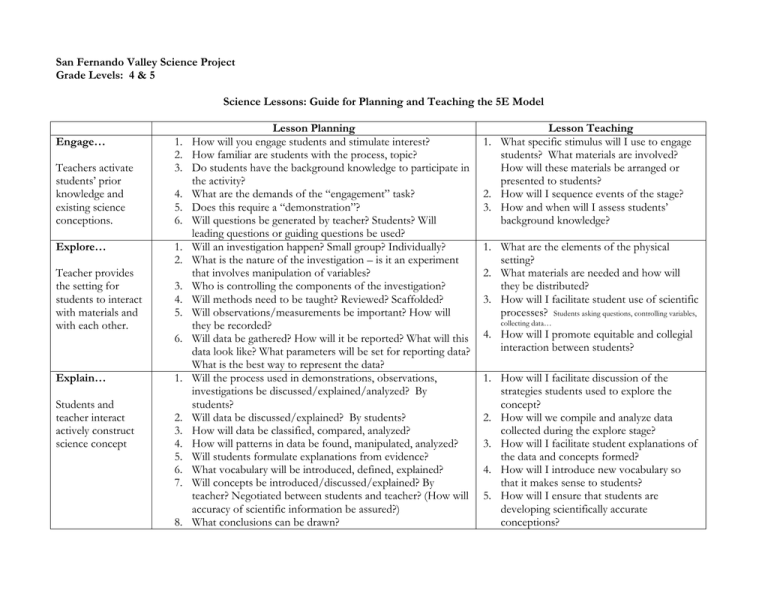
San Fernando Valley Science Project Grade Levels: 4 & 5 Science Lessons: Guide for Planning and Teaching the 5E Model Engage… Teachers activate students’ prior knowledge and existing science conceptions. Explore… 1. 2. 3. 4. 5. 6. 1. 2. Teacher provides the setting for students to interact with materials and with each other. 3. 4. 5. Explain… 1. Students and teacher interact actively construct science concept 6. 2. 3. 4. 5. 6. 7. 8. Lesson Planning How will you engage students and stimulate interest? How familiar are students with the process, topic? Do students have the background knowledge to participate in the activity? What are the demands of the “engagement” task? Does this require a “demonstration”? Will questions be generated by teacher? Students? Will leading questions or guiding questions be used? Will an investigation happen? Small group? Individually? What is the nature of the investigation – is it an experiment that involves manipulation of variables? Who is controlling the components of the investigation? Will methods need to be taught? Reviewed? Scaffolded? Will observations/measurements be important? How will they be recorded? Will data be gathered? How will it be reported? What will this data look like? What parameters will be set for reporting data? What is the best way to represent the data? Will the process used in demonstrations, observations, investigations be discussed/explained/analyzed? By students? Will data be discussed/explained? By students? How will data be classified, compared, analyzed? How will patterns in data be found, manipulated, analyzed? Will students formulate explanations from evidence? What vocabulary will be introduced, defined, explained? Will concepts be introduced/discussed/explained? By teacher? Negotiated between students and teacher? (How will accuracy of scientific information be assured?) What conclusions can be drawn? Lesson Teaching 1. What specific stimulus will I use to engage students? What materials are involved? How will these materials be arranged or presented to students? 2. How will I sequence events of the stage? 3. How and when will I assess students’ background knowledge? 1. What are the elements of the physical setting? 2. What materials are needed and how will they be distributed? 3. How will I facilitate student use of scientific processes? Students asking questions, controlling variables, collecting data… 4. How will I promote equitable and collegial interaction between students? 1. How will I facilitate discussion of the strategies students used to explore the concept? 2. How will we compile and analyze data collected during the explore stage? 3. How will I facilitate student explanations of the data and concepts formed? 4. How will I introduce new vocabulary so that it makes sense to students? 5. How will I ensure that students are developing scientifically accurate conceptions? Extend/Expand… Teacher guides student interactions to apply and extend concept (further predictions, applications, conclusions) Evaluate… Formal/informal assessment of students throughout the lesson cycle. 1. Will extension happen over time, across days, across more lessons? 2. How will further questions be generated? 3. How will predictions be made and conclusions drawn? 4. How will new science concepts/information be applied/integrated? To real-world situations? 5. Will a theory be built upon or revised? 6. Will science ideas be applied outside of the world of science? 1. How will questions be generated that lead to extension of the concept? 2. What activities are most suitable for promoting students’ extension of the concept and use of vocabulary? 3. How will I ensure that students’ thinking remains connected to the original concept? 4. How will I assess conceptual change (or no change) in students’ thinking? 1. Did students acquire scientifically accurate concepts from this lesson? 2. How will students show what they have learned? 3. What is the most appropriate means for students to demonstrate that they have met the goals of the lesson? 1. Did students demonstrate familiarity with the canons of science? 2. Were they able to make sense of new vocabulary? 3. Did they form scientifically accurate conceptions or is their thinking aligned with their initial conceptions? 4. Did students demonstrate the ability to extend the concept in to new but related areas?
